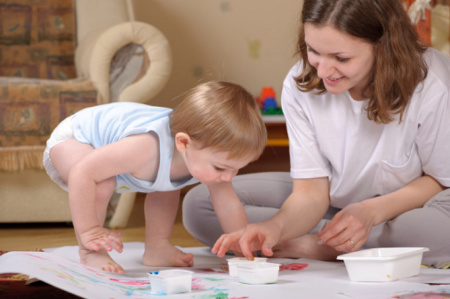How to be a More Effective Parent
0 Comments
"I’d Build Self-Esteem First"
“If I had my child to raise all over again, I’d build self-esteem first, and the house later. I’d finger-paint more, and point the finger less. I would do less correcting and more connecting. I’d take my eyes off my watch, and watch with my eyes. I’d take more hikes and fly more kites. I’d stop playing serious, and seriously play. I would run through more fields and gaze at more stars. I’d do more hugging and less tugging." This Article - Diane Loomans Build Core Confidence Mac Stider of BetterParenting.com feels building core confidence in your child is the number one parenting skill. By mastering this skill, you can raise a child who is completely independent, self-sustaining and able to strive to fulfill his or her dreams. Confidence building begins during the first five years of life. Nurture a “can do” attitude, teach your child to persist and not quit, and to find creative solutions to solve problems. Create an environment where overcoming attainable challenges is a way of life. Persistence and will power are the key elements to achieving core confidence. Photo: Getty Images

Spend Time Together
Spend time with your children. What children want most is your attention. Take time to finger-paint, have a “tea party”, toss a softball or football or make a simple dinner together. Photo: Getty Images

Criticize the Behavior, Not the Child
FamilyDoctor.org advises parents to criticize a child’s bad behavior or mistake rather than the child. Explain why a behavior is wrong or harmful. For example, “Crossing a busy street without looking is dangerous” is the right thing to say. “You are a very bad boy for crossing the street without looking!” would be the wrong thing to say. Tell your child what to do instead. For example, "Always look both ways before crossing the street.” This parenting skill applies to behaviors from dating to driving. Photo: Getty Images

Love Unconditionally
Tell your child every day that you love her/him. Be generous with earned praise, hugs and kisses. Remind your child that she/he is special. Accentuate special talents and accomplishments - no matter how big or small. Photo: Getty Images

Listen
Listen carefully and completely. Stop what you are doing, look him/her in the eyes as he/she speaks and give him/her your full attention. Mac Bledsoe of Parenting with Dignity suggests these key words and phrases that parents can use to be effective listeners. They are: "Oh?", "Really?", "Wow!", "Uuummm!", "I didn't know you felt like that!" and "Tell me more." Sometimes, a child is not seeking a parent’s advice, but rather simply looking for someone to listen. This is when a parent needs to keep silent and just listen. Photo: Getty Images

Make Your Child Feel Safe
Another important parenting skill is to make your child feel safe. Helping your child feel safe begins with reassurance. You comfort her/him when she/he is frightened by the “monster that lives under the bed”. By holding his/her tiny hand, you assure him/her that you will protect him/her when in a new and unfamiliar place. With age-appropriate explanations, you help your child feel secure during the uncertain times in which we live. Photo: Getty Images

Be Consistent
Consistency gives a child a sense of security. It helps in the bonding process between parent and child. Babies with consistent parents develop trust. Maintaining a regular routine is an important part of consistency and helps older children develop a sense of responsibility in that they know what is required of them. Consistency teaches children the lesson of cause and effect, there are consequences for deviant behavior, and helps them make wiser decisions as they grow. Photo: Getty Images

Be Aware of Your Needs and Limitations
There is no perfect parent just as there is no perfect person. Recognize your needs, abilities, strengths and weaknesses. Set realistic expectations for yourself, your spouse and your children. Focus on areas that need the most attention, vow to work on your weaknesses and take time out from parenting to enjoy things that make you happy as a person and as a couple. Caring for your well-being can help you become a more effective parent. Photo: Getty Images
Add a CommentComments
There are no comments yet. Be the first one and get the conversation started!